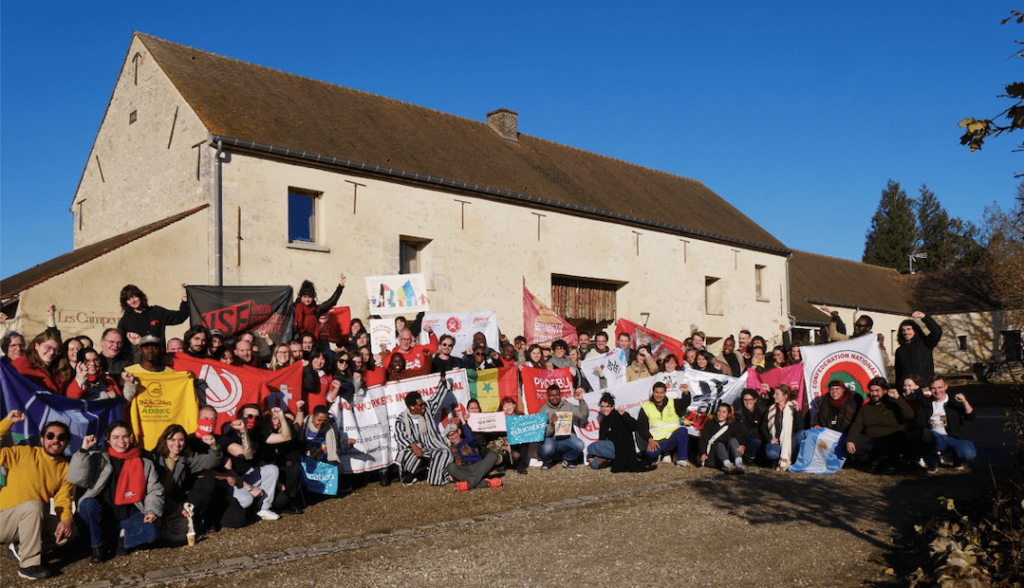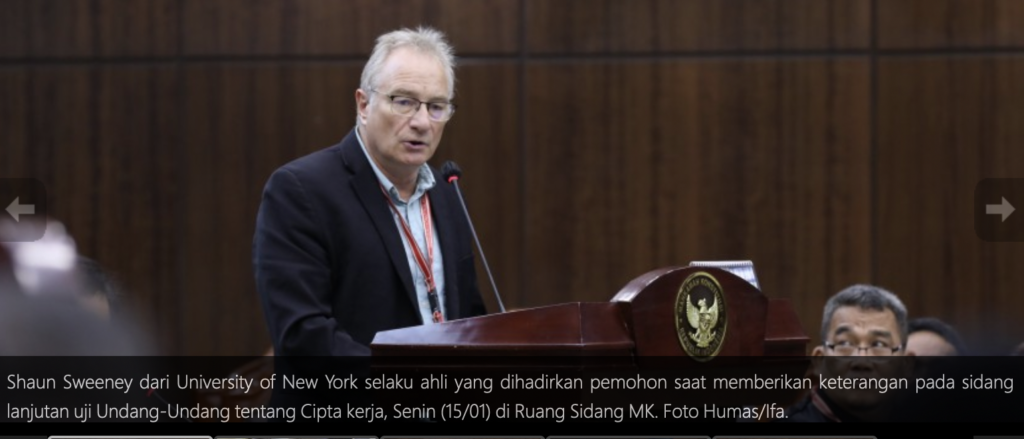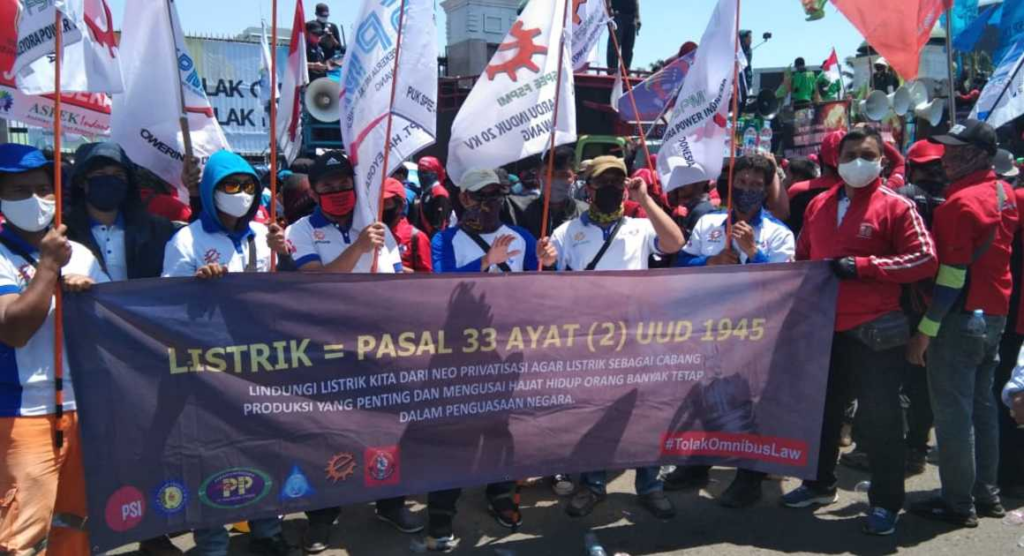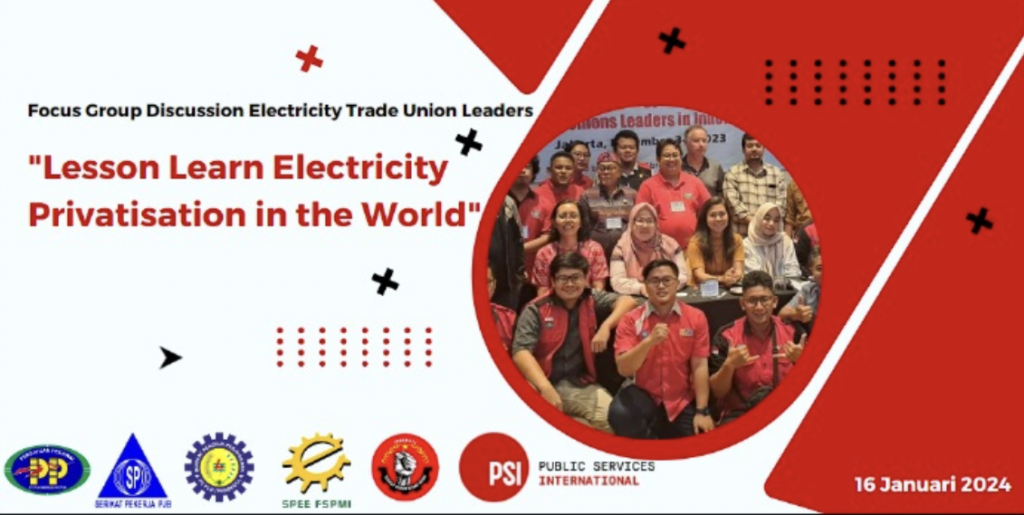The Mexican government has proposed a package of 20 reforms, including the dissolution of two energy sector autonomous bodies (the focus of this bulletin) from the power and hydrocarbons sector. In doing so, the government has taken another significant step to roll back the neoliberal reforms that sought to hand over the country’s energy system to private companies.
Power is Coming Back to the People

On August 23rd 2024, the Mexican Chamber of Deputies approved a bill that proposes the dissolution of the Energy Regulatory Commission (La Comisión Reguladora de Energía–CRE). This body was set up in the early 1990s to prevent the national public utility Comisión Federal de Electricidad (CFE) from impeding the entry of for-profit independent power producers (IPPs) into the country’s electricity system. Several other neoliberal-era bodies are also likely to be shut down, including the Federal Economic Competition Commission (COFECE). President Andrés Manuel López Obrador (AMLO) introduced the reform bill in February 2024, and it will now proceed to the Senate.
Established in many Global South countries under neoliberal structural adjustment of the 1990s, so-called independent regulators have been a central feature of the World Bank’s “standard model” of electricity privatisation. In Mexico, a succession of right-wing administrations enthusiastically embraced the Bank’s proposed reforms, and empowered CRE to increase the presence of private power generation companies (known as independent power producers, or IPPs)
Right-Wing and Business Groups Protest
Angered by the likely dissolution of CRE, in recent weeks the Mexican right-wing and business groups have condemned the initiative claiming it is inconsistent with Mexico’s climate commitments made under the Paris Agreement. The right is trying to depict AMLO’s policy as one that’s hostile to renewables while favouring fossil fuels.

The American Clean Power Association (ACP) mentioned that the reform could negatively affect clean energy development and strain trade relations between Mexico and the United States. The Mexican Wind Energy Association (AMDEE) warned that this reform would halt investments in the wind industry for at least the next two years. But it’s quite the opposite: the shutdown of CRE creates space to help fulfil the government’s commitment to accelerate the energy transition. Limiting the role of the IPPs while expanding the role of the public utility CFE allows for the deployment of low-carbon energy and reduced dependency on imported fossil fuels (particularly gas) to proceed on a public basis while attempting to repair the damage inflicted on Mexico’s energy sovereignty by previous administrations.
There is speculation that the Biden administration will request an independent dispute settlement panel under the USMCA. In March 2023, US Trade Representative Katherine Tai hinted at possible escalation during a Senate Finance Committee hearing.
CRE’s Record: Serving Private Capital
Formed in 1993, under the administration of President Carlos Salinas de Gortari, CRE was populated by enforcers loyal to the neoliberal agenda designed by the World Bank and the IMF.

CRE approved power purchase agreements (PPAs) with IPPs that involved CFE having to purchase electricity at high prices. During this period, most of the IPPs were multinationals based in the US, Spain, and Japan that purchased shale gas from the US, thus increasing Mexico’s dependence on fossil fuel imports and helping to sustain the lucrative fracking boom north of the border.
Between 2013-2014, President Peña Nieto’s administration made more than twenty legislative changes and three amendments to the Mexican Constitution to facilitate more private sector ownership of the power sector. Operating under Peña Nieto’s orders, CRE approved a large number of PPAs with wind and solar companies, allowing the administration to declare itself a champion of climate protection.
Ruthless Inefficiency and AMLO’s Reclaiming

Elected by a large margin (31% difference) in 2018, President López Obrador criticised CRE for issuing too many contracts to IPPs. On July 22, 2020, AMLO sent a memorandum to CRE officials. Referring to Peña Nieto’s reform as a “policy of pillage,” AMLO wrote, “We soon learned the result of this robbery and its corresponding deception: nothing was gained by the nation, everything was translated into lucrative business for private companies and corrupt politicians. . . It is time to correct the course of the policy of surrender that has been imposed on the energy sector.”
In October 2020 then Energy Minister Rocío Nahle García made a three-hour presentation to Mexico’s Senate where she pointed out that CRE had issued PPAs that would generate electricity far in excess of what Mexico actually needed. However, CFE was contractually obligated to pay for the excess power under 25-year PPAs, financially crippling the utility.

Recently elected with 59.5% of the vote, incoming president Claudia Sheinbaum has declared that her administration will continue to strengthen CFE, and defend energy sovereignty as a central objective of her government. With a supermajority in Congress, there is speculation that Sheinbaum will take steps to repeal Peña Nieto’s 2013 amendment to the Mexican constitution that permitted private ownership of the power sector and other strategic industries.
If this happens, it will mark another important milestone in Mexico’s effort to chart a public approach to the energy transition that a growing number of unions are committed to supporting.
Electrical Workers’ Union Supports CRE’s Disappearance

The Foreign Affairs Secretary of the Mexican Electrical Workers’ Union (SME), José Humberto Montes de Oca Luna, published an important statement on SME’s response to the proposed reform. “The disappearance of the CRE represents a hard blow to the neoliberals and their privatisation policies. There will be no turning back despite their now futile legal challenges, despite the scandalous media criticism from corporations and international capitalists who lament the end of the plundering of our country,” said José Humberto Montes de Oca Luna.
Montes de Oca explained that the CRE facilitated private participation in the electricity sector under “perversely advantageous conditions”. “The public sector Federal Electricity Commission (CFE) assumed most of the financial risk of private investments while, by buying energy in bulk from the corporations, it guaranteed high revenues for the private sector through long-term payment commitments at fixed prices, whether or not their electricity was sold,” he said.
Moving forward, “all indications are that the 4T under the new political conditions will be able, without reservations, to pass it [energy sector reform] as formulated by AMLO or even go further. Dr. Claudia Sheinbaum is expected to give a strong push to the energy transition to clean energy,” he said.
The Hydrocarbon Sector: Oil Workers’ Perspective

In addition to the dissolution of the CRE, “Plan C” includes the proposed elimination of six other autonomous bodies, including the National Hydrocarbons Commission (CNH), installed in 2009 under former president Felipe Calderon. A few years later, the 2013 constitutional energy reforms of Peña Nieto strengthened the CNH by approving additional powers to enter into contracts and carry out bids in energy matters.
“For the oil technicians and professionals of the UNTyPP it is clear that the National Hydrocarbons Commission, CNH, together with the Energy Regulatory Commission, was an instrument for the privatisation of our company Petróleos Mexicanos (PEMEX),” said Silvia Ramos Luna, leader of the PEMEX engineers union (UNTyPP).
Ramos Luna explained: “The work carried out by the CNH fulfilled its objective of advancing the privatisation of PEMEX, of all the activities it developed perhaps the most important were the rounds for the delivery of the oil fields, it designed a programme for the delivery of 507 oil fields and managed to deliver 107, this delivery of our heritage was stopped with the arrival of Andrés Manuel López Obrador, who on 3 December 2018, when another round was to be carried out it was suspended, to this day no more rounds have been carried out. Not to mention that the sale of pipelines and storage tanks was also stopped.”
“We strongly support the disappearance of the CNH,” she said.
Trade Unions for Energy Democracy (TUED) is a global, multi-sector trade union initiative to advance democratic direction and control of energy in a way that promotes solutions to the climate crisis, energy poverty, the degradation of both land and people, and responds to the attacks on workers’ rights and protections. TUED is part of the Global Labour Institute Network.
Read more TUED Bulletins here.




















